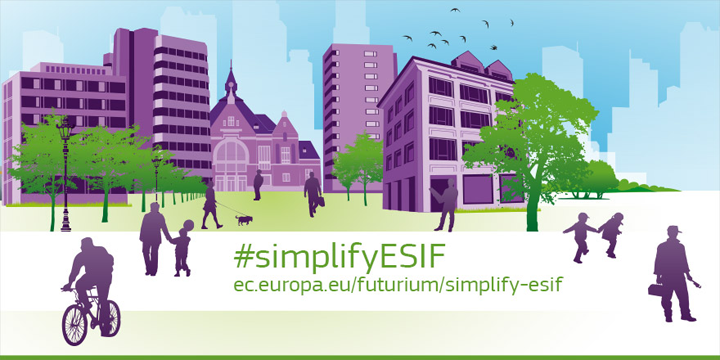In line with the initiative "EU budget focused on results" and with the efforts for Better Regulation, the Commission today takes stock of the work conducted so far by the High Level Group on Simplification for the beneficiaries of the European Structural and Investment Funds (ESI Funds). Red tape can be a deterrent for small businesses and start-ups; they might sometimes give up on the opportunities offered by the ESI Funds because of the lengthy administrative procedures. It means
One year on: High Level Group presents key recommendations to ease access to funding for businesses
- 27 September 2016

In line with the initiative "EU budget focused on results" and with the efforts for Better Regulation, the Commission today takes stock of the work conducted so far by the High Level Group on Simplification for the beneficiaries of the European Structural and Investment Funds (ESI Funds).
Red tape can be a deterrent for small businesses and start-ups; they might sometimes give up on the opportunities offered by the ESI Funds because of the lengthy administrative procedures.
It means precious potential for improving Europe's competitiveness is left untapped. To remedy this, a year ago the Commission launched the High Level Group on Simplification, which works on concrete solutions to simplify access to the ESI Funds.
So far the Group has issued a set of recommendations in four areas: online procedures, simpler ways to reimburse expenditure, easier access to funding for SMEs and increased uptake of financial instruments. In the end of 2016, the Group will focus on tackling "gold-plating", where extra requirements are added at national or regional level.
Some of the Group's recommendations have already been included in the Commission's proposal for the mid-term review:
- Simpler ways to reimburse expenditure: for example, beneficiaries would no longer have to justify every single cost item but can use flat rates or fixed prices for certain categories of costs: staff or other business expenses such as insurance, rent.
- Promoting the "once only" principle: documents provided by the beneficiaries should be kept in digital form and would not have to be reproduced at each step of the implementation of the project.
- Promoting synergies and best practices, such as single calls for proposals that could bring together different EU funding streams. It would allow SMEs to apply for one investment package rather than for multiple calls.
- Aligning the requirements for entrepreneurs who receive loans from financial instruments supported by the ESI Funds as much as possible with market practice: these requirements should be lighter than the requirements for normal grants, such as documents needed, periods for retention of the documents and reporting.
Building on the recommendations of the Group, the Commission also proposed to make combinations with the European Fund for Strategic Investments (EFSI) easier, with only one set of procedures for the applicant instead of separate rules for each of the funds.
Links:
- Press Release
- Simplify ESI Funds
- EU budget focused on results
- List of Members of the High level group
- Full report of the Group on e-governance
- Full report of the Group on simplified cost options
- Full report of the Group on easing access to funding for SMEs
- Full report of the Group on increasing the uptake of financial instruments
- Twitter: @CorinaCretuEU @EU_Regional
